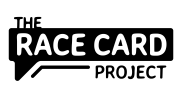Charley Sullivan,
Ann Arbor, MI.
Understanding Race Project- University of Michigan
It was 1976. I was 12, and just moved back to the DC suburbs from growing up in Southeast Asia and West Africa. The first question to me in 7th grade English class was “Did you see Tarzan?” This is how much my new classmates knew about the world. To say I didn’t really feel welcome or understood would be an understatement. Then again, who does feel understood at 12? But 12 and just moved back from someplace weird compounds your weirdness.
There were very few students of color in the school at that point–maybe about 30 black students–only one of whom was not in the “special ed” track–and a few Asian students. There were a pair of Arab twins, the sons of a Saudi prince, whose large penises were the endless talk of after-gym-class showers. We’d already learned to connect race with bodies and with sex and with the exotic.
But, as a white boy having grown up in brown and black worlds, for the first time in my life, I was NOT on display as the other. For the first time, I sort of was just sinking into the background. No-one had any clue what my life had been like, or why I liked mangoes (or even what mangoes tasted like,) much less rambutan.
They knew that I had asked a kid whether the Miami Dolphins were a swim team, and that I knew ridiculous amounts of vocabulary and grammar (which had been drilled into me at my West African elite prep school,) and that I already spoke French, which no-one got to take until 8th grade, but I was doing it in 7th, with special permission. And they knew that I could read music, because the first day in chorus, I made the mistake of picking up the sheet music and just reading the thing through, to the delight of the music teacher, who spent no small amount of time telling the others that reading music wasn’t hard, see? Charley just did it right off.
The didn’t know, at least not in any official way, that I was gay. But kids sense that stuff. And they knew I hadn’t grown up with them since kindergarten. So, I was, or at least felt like I was, an outsider.
On about the third week of school, I saw two Southeast Asian kids together, clearly Vietnamese, I now know, but closer to the Filipino and Indonesian kids I grew up with as friends than anyone else at the school. So I went up and asked my simple question, “Where are you from?”
They didn’t answer. There was no conversation. They ignored me and walked away. I wondered if they spoke enough English to understand the question, since everyone in the school knew these kids didn’t speak very good English.
The next week, I was walking down the hall during class time for some reason, and the two of them were coming the other direction. Looking at me with barely disguised contempt, they threw army salutes my way as they strode by in lock step.
The light bulb went off in my head instantly. Not just the “aha” moment about race, but the “oh shit” moment too. For me, I read race and saw connection; they read race and saw a challenge to their very presence.
I wanted to go running and say, “but wait, you don’t understand . . . we’re the three kids in this school who know that part of the world. We should be friends.” But it never happened.
Charley’s story was featured on NPR’s Morning Edition. Listen







Comments are closed.